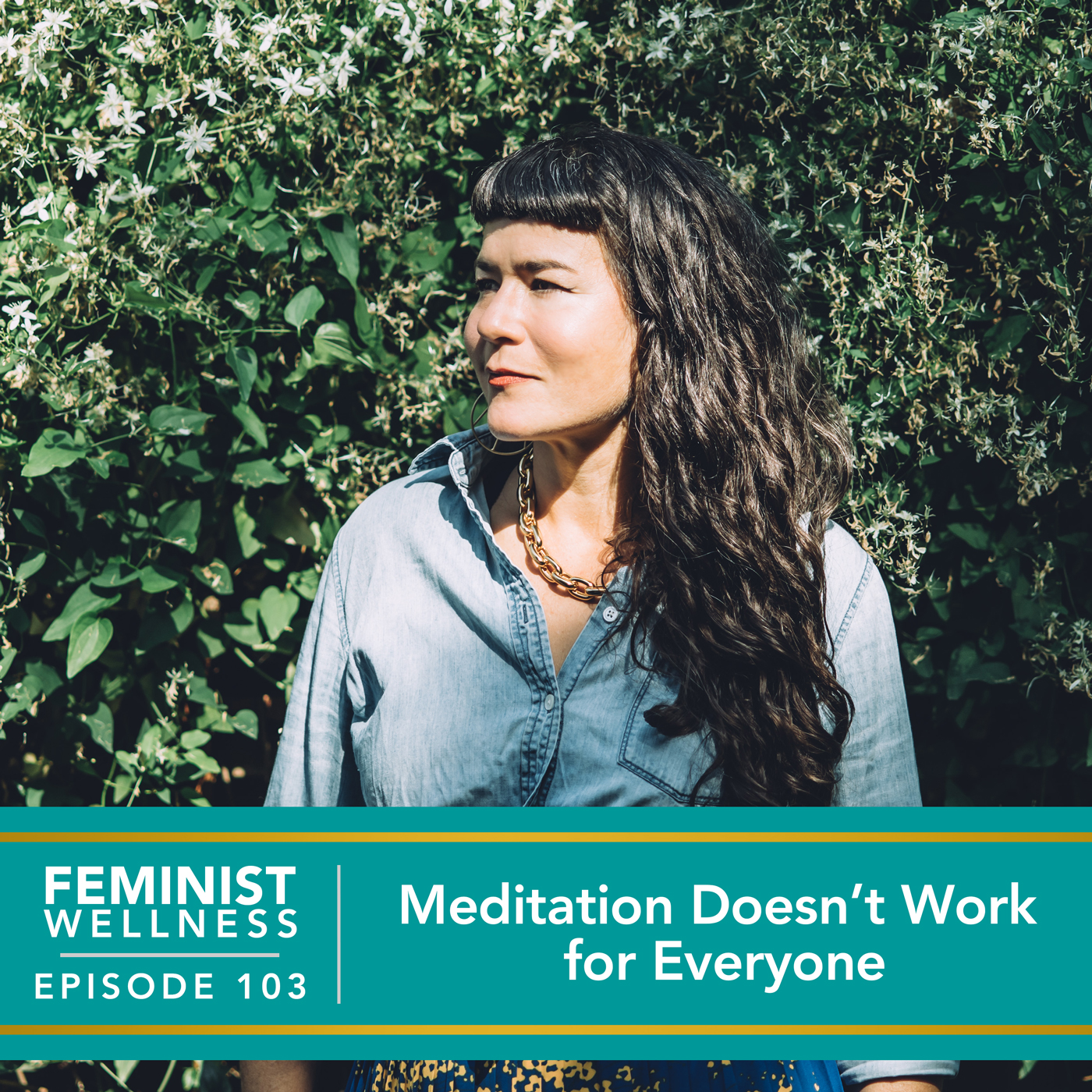Meditation may not work for those suffering from chronic conditions such as anxiety, depression, or PTSD, as it may worsen their symptoms. Additionally, traditional meditation can be challenging when one’s inner world is in chaos, making it difficult to sit silently and relax the mind.
It is important to understand that meditation is not a one-size-fits-all practice, and alternatives such as changing situations, mindset, or engaging in exercise may provide more effective results for individuals who do not find success with meditation.
1. The Challenges Of Traditional Meditation
Meditation is not always effective for everyone, and there are specific challenges associated with traditional meditation practices. For individuals with inner chaos or a tumultuous mind, the process of relaxing and quieting the mind can be particularly challenging. This can make it difficult to achieve a state of calm and clarity that meditation aims to provide. Furthermore, for individuals suffering from anxiety, depression, or post-traumatic stress disorder (PTSD), meditation may actually worsen symptoms. The stillness and introspection practiced in meditation can connect individuals more closely with their emotions, including unpleasant ones. This can be overwhelming and exacerbate symptoms for those already struggling with emotional turmoil. Understanding these challenges and recognizing that traditional meditation may not be suitable for everyone is essential. Exploring alternative practices like exercise, changing mindsets, or modifying external situations may be beneficial for individuals who do not find success with meditation. |

Credit: victoriaalbina.com
2. The Resistance To Meditation
If you suffer from chronic conditions like anxiety or depression, traditional meditation may worsen your symptoms. The stillness of meditation can also bring forward unpleasant emotions, which may be difficult to deal with if you are constantly busy and avoid facing them.
Additionally, inconsistent practice and having unrealistic expectations can be reasons why meditation doesn’t work for some individuals.
Why doesn’t meditation work for me? One possible reason is the resistance to meditation. When faced with unpleasant emotions, some individuals tend to keep themselves busy in order to avoid dealing with these emotions. This unconscious resistance can hinder the effectiveness of meditation. The stillness and tranquility of meditation bring us closer to our emotions, including the uncomfortable ones.
However, if we constantly distract ourselves and stay occupied, we may find it difficult to sit silently and face these emotions. This resistance can often arise from a desire to avoid confronting unconscious emotions that we would rather not deal with. This resistance, coupled with chronic conditions such as anxiety, depression, or posttraumatic stress disorder, can make meditation more challenging and potentially worsen symptoms. It is important to recognize and address this resistance in order to fully benefit from the practice of meditation.
3. Meditation And Specific Conditions
Why doesn’t meditation work for me? There could be several reasons why you are not experiencing the desired benefits of meditation. If you suffer from chronic conditions such as anxiety, depression, or posttraumatic stress disorder, meditation may worsen your symptoms.
Traditional meditation, such as sitting silently and relaxing your mind, can be very challenging when your inner world is in chaos. Furthermore, individuals with ADHD may also struggle with meditation practices that require sustained attention to their breath or bodily sensations.
Moreover, many people grow frustrated with mindfulness because they focus on expectations rather than clear seeing. They may misunderstand what mindfulness truly is and mistake their own deep-rooted beliefs for clear seeing.
It is important to note that meditation is designed to be a daily practice, and consistency is key to producing desirable results. Just like brushing your teeth, if you only do it once every few weeks, it won’t have much impact. So, if meditation hasn’t been working for you, you may want to explore alternative practices such as changing your situations or mindset, or incorporating exercise into your routine.
4. Lack Of Consistency In Practice
If you suffer from chronic conditions like anxiety or depression, meditation may worsen symptoms. Consistency is crucial in meditation, just like brushing your teeth daily. It’s important to practice regularly to see desirable results.
| Lack of Consistency in Practice |
|
Meditation requires a consistent daily practice to yield the desired results. Just like brushing your teeth, if you only do it once every few weeks, it won’t be effective. The same applies to meditation. Consistency is key. Without regular practice, it’s challenging to experience the benefits of meditation. It’s important to establish a daily routine and make meditation a priority in your life. Treat it as a non-negotiable activity, just like brushing your teeth or taking a shower. By practicing consistently, you allow yourself to go deeper into the practice and develop a sense of mindfulness and awareness that can transform your life. So, commit to a daily meditation practice and make it a habit. Remember, small consistent efforts can lead to significant growth and transformation. |
| Importance of daily meditation practice |
|
Consistency in daily meditation practice is crucial for experiencing its benefits. Just as we brush our teeth every day to maintain oral hygiene, regular meditation ensures mental well-being. In our fast-paced and chaotic lives, meditation helps us find inner peace and calmness. By making meditation a daily habit, we create a sacred space in our life to reconnect with ourselves, reduce stress, and gain clarity of mind. It allows us to cultivate mindfulness and be present in the moment. Through consistent practice, we develop resilience, emotional stability, and improved focus. So, treat daily meditation practice as a self-care ritual and prioritize it in your daily routine. It’s an investment in your overall well-being that will bring about positive changes in your life. |
Frequently Asked Questions For Why Doesn’t Meditation Work For Me
Why Meditation Is Not Working For You?
Meditation may not work for you if you have chronic conditions like anxiety, depression, or PTSD, as it can worsen your symptoms. It may also be challenging to practice meditation when your mind is in chaos. Additionally, some people resist meditation due to the stillness and connecting with unpleasant emotions.
ADHD and difficulties with sustained attention may also make meditation challenging. Frustration with mindfulness can arise from focusing on expectations rather than seeing things as they are. Inconsistent practice can also hinder meditation’s effectiveness.
Why Am I So Resistant To Meditation?
If you find yourself resistant to meditation, it could be because sitting still and relaxing your mind is challenging when your inner world is chaotic. You may also be avoiding unpleasant emotions that meditation brings up. Additionally, chronic conditions like anxiety, depression, or PTSD can make meditation worsen symptoms.
ADHD and difficulties with sustained attention may also make it harder for meditation to work. It’s important to practice consistently for desirable results.
Why Meditation Doesn’t Work For Adhd?
Meditation may not work for individuals with ADHD due to difficulties in regulating attention and focusing on the present moment. For those with chaotic inner worlds or challenges with sustained attention, traditional meditation practices may be challenging. Alternative methods like exercise or changing mindset and situations may be more effective.
Why Mindfulness Doesn’t Work For Everyone?
Meditation doesn’t work for everyone because it can worsen symptoms for people with chronic conditions like anxiety or depression. It may also be challenging if your inner world is in chaos or if you’re avoiding dealing with unpleasant emotions. ADHD individuals may struggle with sustained attention practices.
Some people focus on expectations instead of seeing things as they are, misunderstanding mindfulness. Inconsistency in practice can also hinder results.
Conclusion
If you find that meditation isn’t working for you, it’s important to consider a few factors. Chronic conditions like anxiety or depression can intensify during meditation, making it challenging to find stillness. Additionally, if you tend to avoid dealing with unpleasant emotions, you may resist meditation altogether.
Moreover, ADHD and difficulty in sustaining attention can also make meditation challenging. Remember, meditation requires consistency to produce desirable results, much like brushing your teeth daily. If meditation doesn’t resonate with you, exploring alternatives like changing your mindset, situation, or incorporating exercise may be worth considering.

